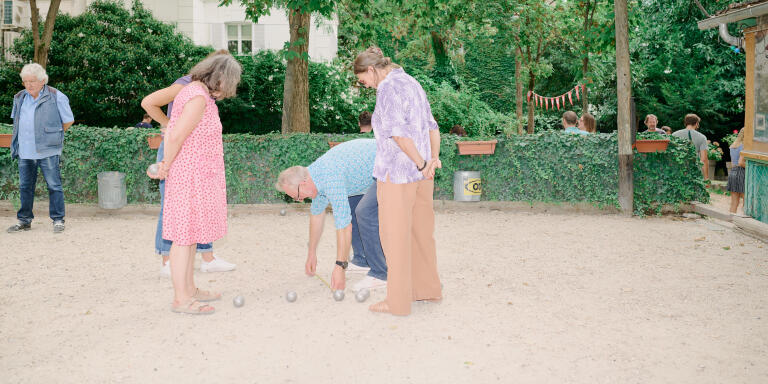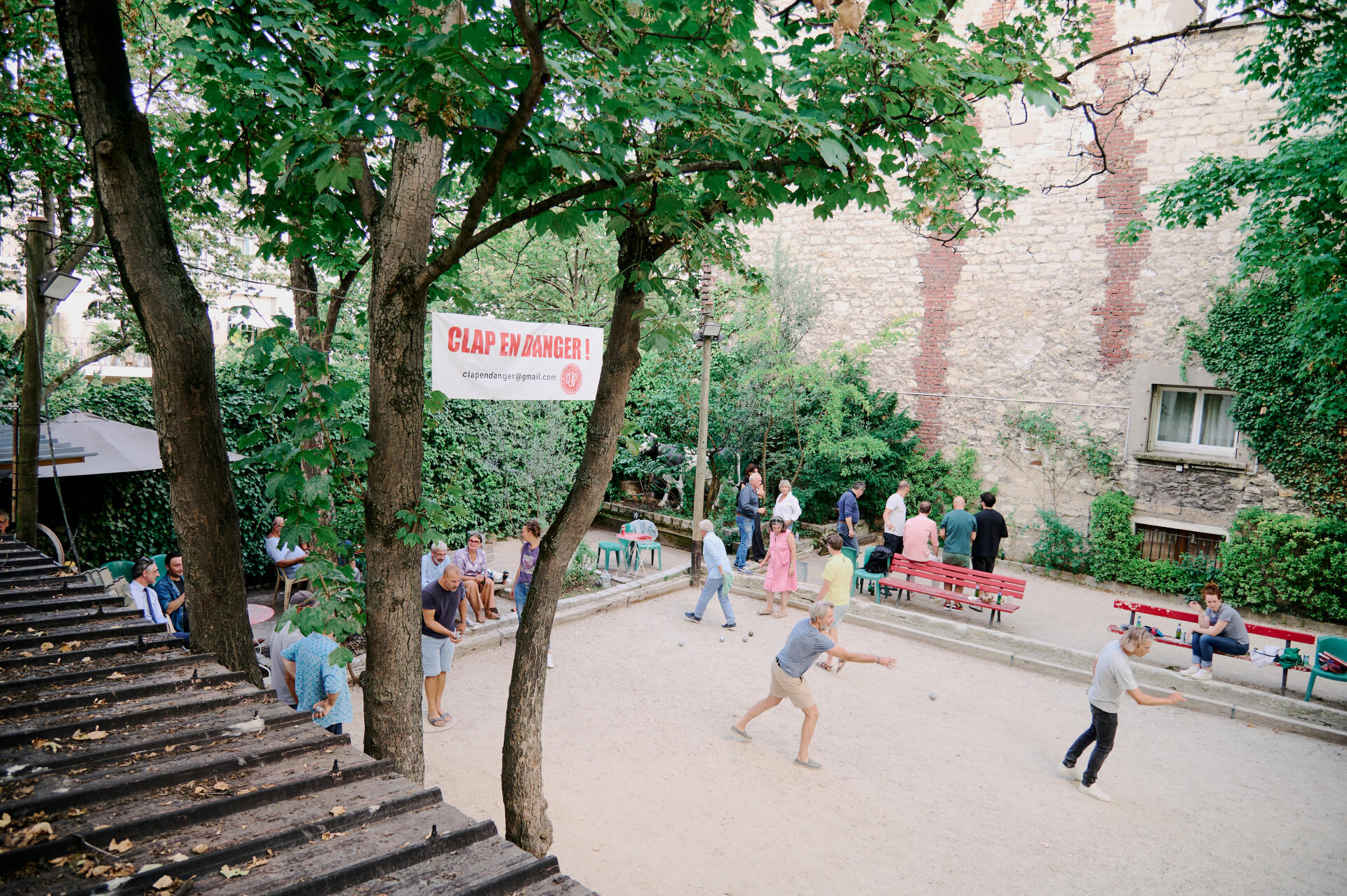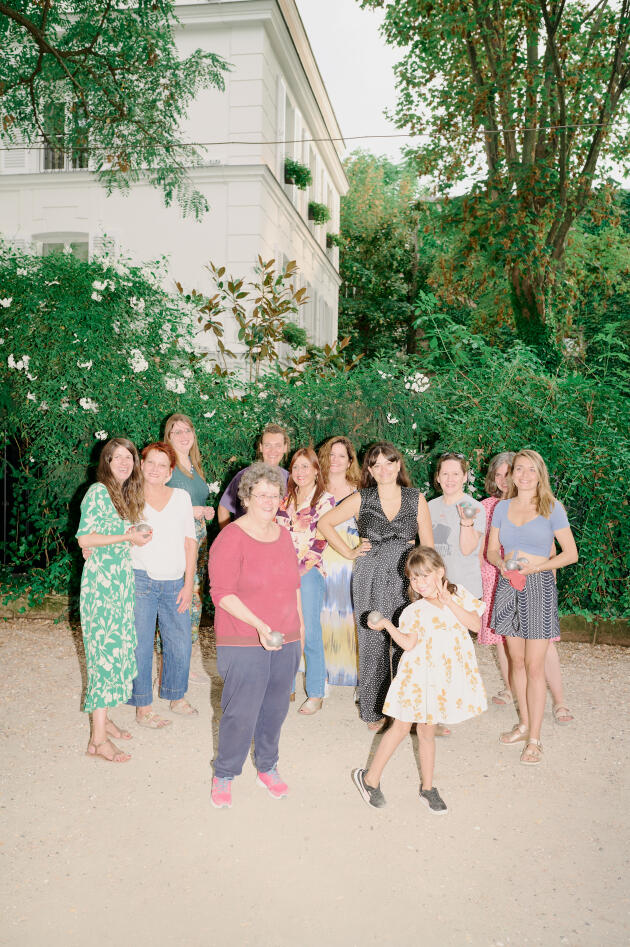


Montmartre loses its marbles over pétanque
NewsThe court used by members of the local Club Lepic Abbesses Pétanque for over half a century is now being taken over by a luxury Parisian hotel. Club members and neighbors are up in arms and appealing the decision.
Click, clack, clang... In the late summer heat, steel balls soared towards the targets placed around 10 meters away, eliciting exclamations of joy or disappointment. At 6:30 pm, dressed in shorts and sneakers or donning dresses and heels, around 20 women took over half the courts to practice their pétanque (or boules) skills. September 6 marked the return to training for the women of the Club Lepic Abbesses Pétanque (CLAP), on the Butte Montmartre, in the 18th arrondissement. Their goal this season was "to become Paris champions."
On the rest of this plot covering almost 800 square meters, nestled in the Passage de la Sorcière linking Avenue Junot to Rue Lepic, various activities took place between craftsmen, artists, students, business leaders, shopkeepers, jobseekers, professionals and retirees. Card games and conversations unfolded on the iron tables and wooden benches in the shade of century-old trees. In the clubhouse made from brick and wood, Jojo, a truculent man in his 70s, assisted a young retiree ready to sign up for her first membership.

Maxime Liogier, a journalist and member also involved in the club's communication, emphasized the CLAP's commitment to inclusivity, although it has long been criticized for its "insularity," dating back to its creation in the 1970s by shopkeepers and locals from the area. "It's changed a lot," said Liogier. "There are young and old, rich and not-so-rich members. CLAP is a space for diversity and social connection."
'The odds were stacked'
Despite this open ecumenism, the club located on the last vestiges of the Maquis of Montmartre – a protected area since 1991 – has been going through a rough patch. A large banner reads "CLAP in danger!". For the largest pétanque club in Paris and France's leading women's club in membership terms (out of 287 members, 97 are women), the land – which it has occupied free of charge, and without right or title since 1971 – has become an "zone to be protected."
In early July, the Paris Council awarded a 12-year public domain occupation agreement (CODP) for an annual fee of €60,000 (excluding VAT) to Oscar Comtet, the general manager and owner of the Hôtel Particulier Montmartre (HPM), an adjoining luxury establishment, via Fremosc, his family company. This decision followed a competitive call for expressions of interest (AMIC), which had started in September 2022.

He talked about an additional 320 square meters of open green spaces, the reintroduction of 200 plant species, free access for the public and schools for educational workshops, pilates, tai-chi-chuan and yoga classes, and a local organic market. Ticking off the themes important to the Parisian executive, his proposal was endorsed as "the best bid" by Olivia Polski, the consultation's rapporteur and deputy mayor (PS) in charge of commerce at Paris City Hall. She praised a "financial model guaranteeing the sustainability of public green space."
You have 75.32% of this article left to read. The rest is for subscribers only.
